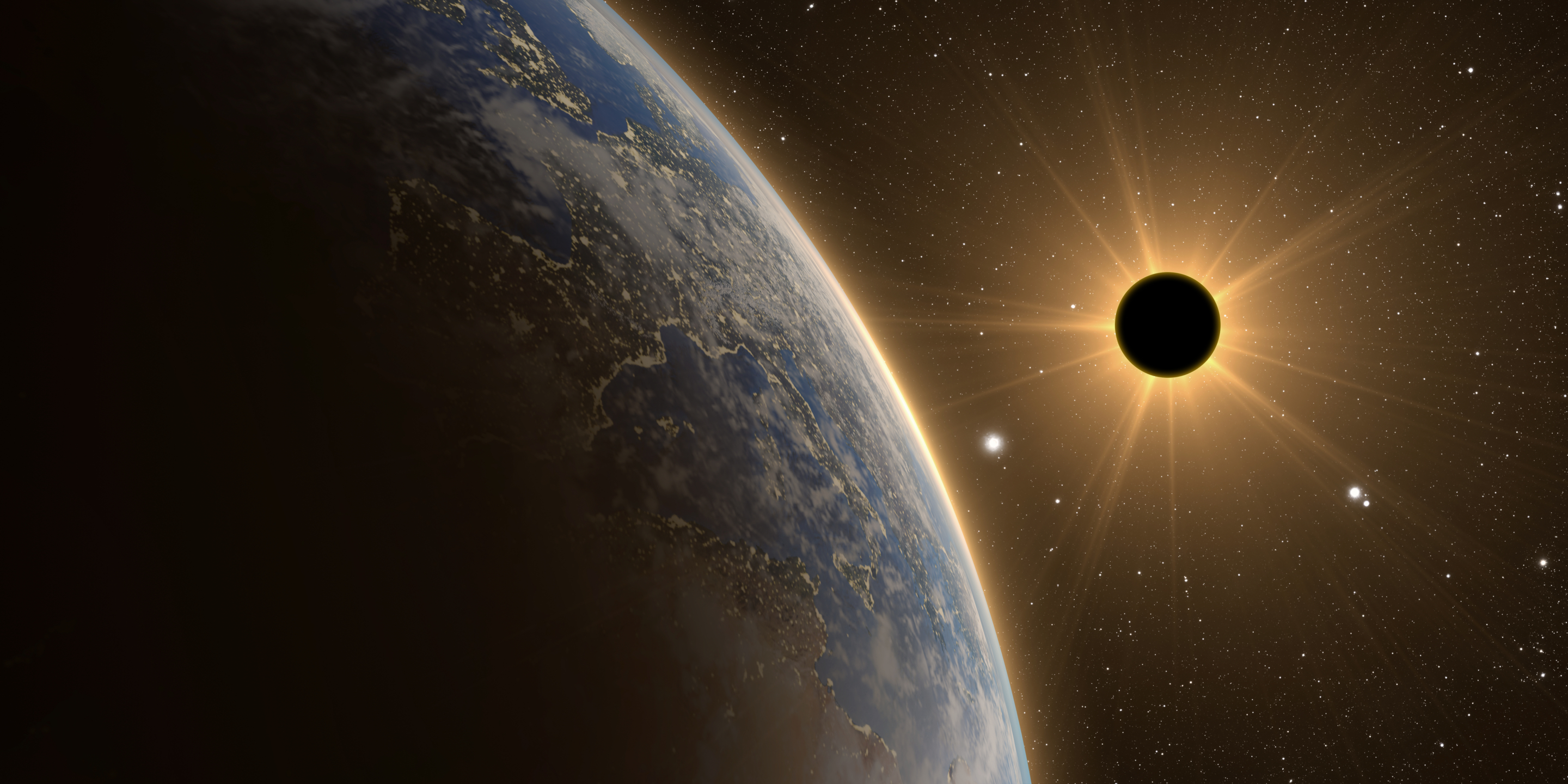Home / Eye Health /

Eclipses are wondrous spectacles where the sun, moon, and Earth align. Erie, Pennsylvania is going to be the place to be for the 2024 total solar eclipse! But beware, hidden within this cosmic phenomenon lies a threat that often goes unnoticed: the potential harm to your eyes. It is crucial to understand the risks and protect your eyes. As with most things, too much of a good thing is a bad thing. This applies to your eyes with eclipses as well.
In Erie, the eclipse is set to take place on April 8, 2024 just after 3:16 pm EDT. The downtown area will experience approximately 3 minutes and 42 seconds of totality, making it an exceptional location to witness this celestial event.
The danger of direct viewing during eclipses, whether solar or lunar, stems from intense sunlight that can damage retinas. Even a dimmed sun emits powerful invisible ultraviolet (UV) radiation. Gazing at it can cause solar retinopathy, harming retinal cells and leading to irreversible vision loss.
Protective eyewear is paramount. Regular sunglasses don’t shield against eclipse UV and infrared rays. Specialized eclipse glasses with solar filters adhere to ISO 12312-2 standards, ensuring safety. Remember, even cameras and telescopes need solar filters to prevent eye damage.
In our age of documenting everything on social media, risking vision for a snapshot is unwise. Using smartphones to photograph eclipses without protection can be as harmful as staring directly.
In conclusion, the forthcoming eclipse promises awe but harbors risks. Invest in certified eclipse glasses, recognize the sun’s power, and protect your eyes. On April 8, 2024, seize the eclipse’s beauty while safeguarding your sight.
How to safely watch the solar eclipse:
- Carefully look at your solar filter or eclipse glasses before using them. If you see any scratches or damage, do not use them.
- Always read and follow all directions that come with the solar filter or eclipse glasses. Help children to be sure they use handheld solar viewers and eclipse glasses correctly.
- Before looking up at the bright sun, stand still and cover your eyes with your eclipse glasses or solar viewer. After glancing at the sun, turn away and remove your filter—do not remove it while looking at the sun.
- The only time that you can look at the sun without a solar viewer is during a total eclipse. When the moon completely covers the sun’s bright face and it suddenly gets dark, you can remove your solar filter to watch this unique experience. Then, as soon as the bright sun begins to reappear very slightly, immediately use your solar viewer again to watch the remaining partial phase of the eclipse.
- Never look at the uneclipsed or partially eclipsed sun through an unfiltered camera, telescope, binoculars, or other similar devices. This is important even if you are wearing eclipse glasses or holding a solar viewer at the same time. The intense solar rays coming through these devices will damage the solar filter and your eyes.
- Talk with an expert astronomer if you want to use a special solar filter with a camera, a telescope, binoculars, or any other optical device.
For information about where to get the proper eyewear or handheld viewers, check out the American Astronomical Society. Here at Laser Eye Surgery of Erie, Inc., we will also have protective eyewear available in the near future.
After this eclipse, another total eclipse does not occur until on August 23, 2044, across the Americas. Enjoy these cosmic wonders responsibly while safeguarding your vision.
More information:
https://www.aao.org/eye-health/tips-prevention/safe-solar-eclipse-viewing-infographic
https://www.erielasereye.com/the-sun-uv-light-and-your-eyes/

